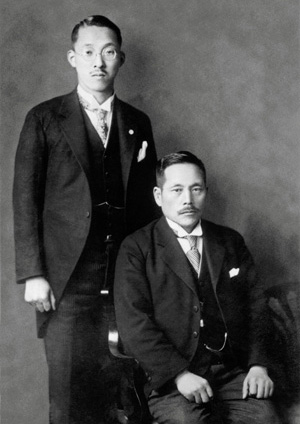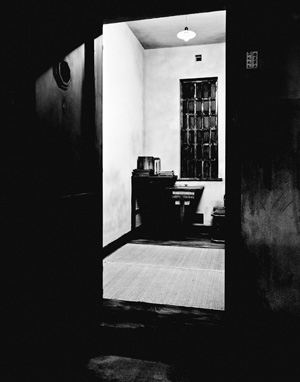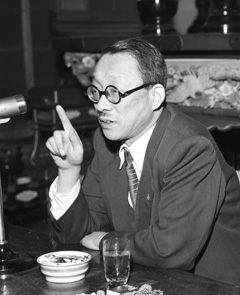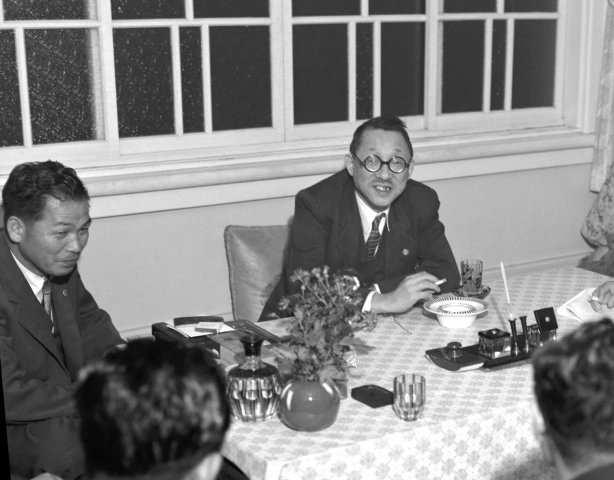Josei Toda (1900–58) was an educator, author, and entrepreneur. As the second president of the Soka Gakkai, he revived the organization after World War II, building it into a dynamic, popular movement.
Encountering his Mentor

Josei Toda with Tsunesaburo Makiguchi, 1928
Toda encountered his mentor Tsunesaburo Makiguchi when he was teaching in a school in Tokyo, where Makiguchi was principal. Impressed by Makiguchi’s educational ideals, he soon became his protege and followed Makiguchi in his decision to practice the same philosophy as Makiguchi in 1928. On 18th November 1930, Toda & Makiguchi together founded the ‘Soka Kyoiku Gakkai’ (Society for Value-creating Education), forerunner of the Soka Gakkai, with Toda becoming its General Director.
Imprisonment

Reconstruction of the type of wartime prison cell in which Toda was held in solitary confinement
In 1943, as Japan’s militarist authorities tightened control over society and suppressed dissents, Makiguchi and Toda opposed the government’s policies, and were arrested as a result. During imprisonment, Toda devoted himself to the practice and study of Buddhism, and thus gained a profound grasp of its principles.
All such efforts deepened his confidence that all people can manifest an enlightened life condition through these teachings. Despite going through the harsh realities in prison, this realization became a reason for Toda’s unshakable conviction in this philosophy and in his mission to spread its teachings.
Building the Soka Gakkai
On his release from prison toward the end of World War II, Toda, blazing with the desire to get the world rid of misery, began to reconstruct the Soka Kyoiku Gakkai. He renamed it the Soka Gakkai (Society for the Creation of Value).
Toda taught that through this philosophy of inner-motivated change, or “human revolution,” all people can change their destiny for the better. Toda explained the concept of “human revolution” as breaking through the shackles of our “lesser self,” which is bound by self-concern and the ego, and making conscious efforts in our mind, heart, spirit and action to grow in altruism toward a “greater self” capable of caring and taking action for the sake of others—ultimately all humanity.
This message resonated powerfully among the many people suffering from poverty, illness, and other challenges in the chaos of post-war Japan. Toda’s unshakable confidence, together with his own ability to translate its profound concepts into practical guidance for daily life, reignited people’s hope, and courage.
By the time of his death in 1958, Toda had achieved his goal of expanding the organization’s membership to 750,000 households and had laid the foundation for the dramatic spread of the movement in Japan and abroad.
Toda’s legacy was carried forward by his closest disciple and successor – Daisaku Ikeda, who later went on to become the third President of the Soka Gakkai after Toda’s demise. In honour of Toda’s ideals, in 1996, Daisaku Ikeda founded the Toda Peace Institute (formerly the Toda Institute for Global Peace and Policy Research) in Tokyo. The institute brings peace researchers, policymakers, and community activists together on projects related to peacebuilding and dialogue.





